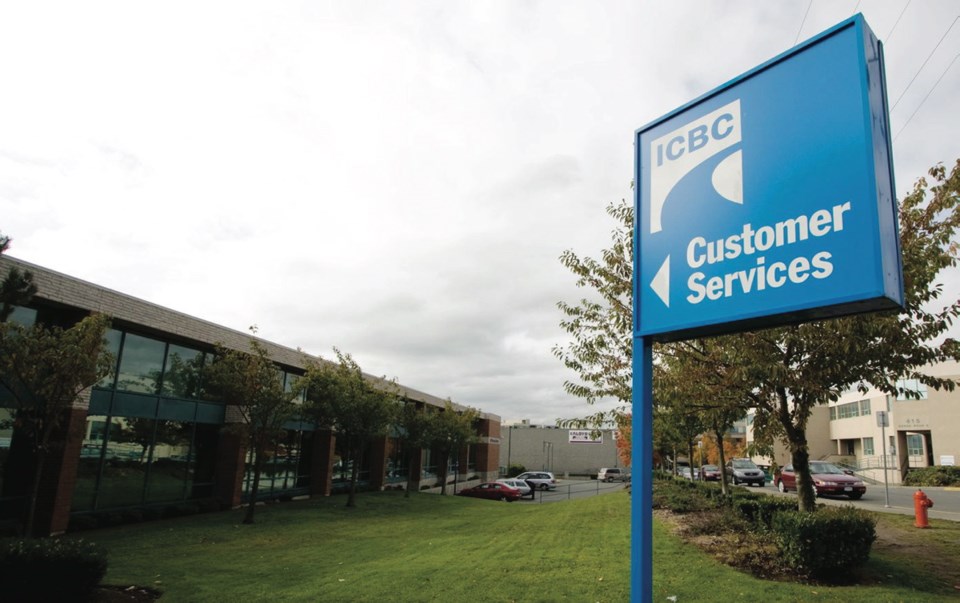The trouble with Attorney General David Eby’s genius ideas is they look great in theory but sometimes run into difficulties in the area he’s supposed to be familiar with — the rule of law.
The latest example surfaced Tuesday.
After dwelling at length during the NDP’s first term about the disgraceful state in which they found ICBC’s finances, Eby came up with a barrage of reforms.
One of them was to shunt the lawyers out of the picture when it came to “minor” injury claims from car crashes. He announced they were going to replace the whole expensive bunch of them with the Civil Resolution Tribunal. It’s a group of lay people appointed by government to handle smaller-scale disputes.
As he told the legislature: “The goal… is to get minor injury disputes and minor motor vehicle matters resolved quickly, efficiently and proportionally….to get the administrative costs down… and to have them resolved without a bunch of legal expenses on both sides so that the money actually goes to accident victims.”
The Civil Resolution Tribunal even created an app to help sort everyone out.
As explained when it was unveiled: You log on via your phone or computer, make your case to a voice-recognition apparition – the “Solution Explorer” — and proceed through a stress-free resolution process.
The Trial Lawyers Association of B.C., raised some objections. Understandable, given that it would curtail the livelihood of hundreds of their members who make a tidy living in that field.
The association has been arguing about infringement on rights and due process — and battling for those livelihoods — since the changes started rolling out, so it headed to court once again.
In a 106-page decision released Tuesday, B.C. Supreme Court Chief Justice Christopher Hinkson snuffed out a few key sections of the act regarding the unilateral jurisdiction the tribunal was given by the government, saying they are unconstitutional.
The tribunal can still function if claimants want to use it. But the arbitrary authority to determine whether a case is “minor” and therefore eligible for the tribunal, has been stripped. The biggest impact will be on cases dating from April 2019 through to this May, when the full no-fault system takes effect.
Justice Hinkson ruled that the tribunal is performing a judicial function. Transferring a judicial power that belongs exclusively to a superior court according to the constitution is allowed in certain circumstances. But not in this case.
He also scrutinized the government’s argument that the change was necessary because so many claims were clogging the courts – 24,546 new car accident claims in 2019.
The judge said the government’s own evidence showed only a tiny fraction, about 200 a year, went to trial.
One of the reasons for the changes was that the vast majority of ICBC claims are relatively low-value, but take up much court time. The judgment said for the last five fiscal years, 80 per cent of bodily injury claims were for under $50,000.
But only 15 per cent were litigated and less than one per cent was actually adjudicated.
Although he noted that while it’s up to the legislature to decide how money is spent, “the claim that under the CRT the management of such claims will be cheaper is not supported by the statistics in evidence before me.”
As for the government’s argument the tribunal will be faster, he said that’s speculative at best.
His decision said the tribunal’s powers are far more significant than the government suggested and are “part of a scheme to transfer adjudicative power over tort claims from the Supreme Court to the administrative tribunal.”
It’s the second big win for the trial lawyers.
When Eby imposed limits earlier on how many expensive expert witnesses could be called at ICBC-related trials, the association sued. The same judge ruled that the limits were unconstitutional.
Eby objected to the decision and the government did an end-run around to limit them in a different way.
After the election, responsibility for ICBC was taken from Eby and moved to Public Safety Minister Mike Farnworth. But Eby is still responsible for defending the government from the other legal challenges to his reform package that are expected.
He said Tuesday “the uncertain outcome of the case has already been accounted for in ICBC’s finances.”
Farnworth will need his own Solution Explorer to figure out the next moves.



